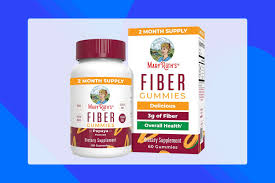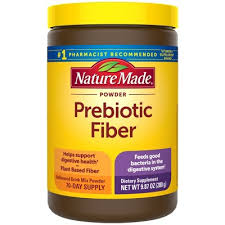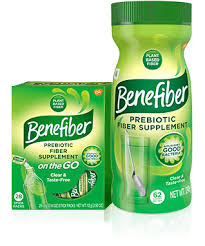If you’ve ever dealt with digestive issues like bloating, constipation, or irregular bowel movements, chances are someone has recommended fiber supplements. And they were right — fiber is one of the most essential nutrients for good gut health.
But with so many products on the market — powders, gummies, capsules, and drink mixes — it can be confusing to know which fiber supplement is truly the best for your body and lifestyle.
In this article, we’ll dive deep into what fiber supplements are, why they matter, how to choose the right one for you, and which options top the list in 2025.
Understanding Fiber and Why It Matters
Dietary fiber is a type of carbohydrate that your body can’t fully digest. Instead of being broken down into sugar, fiber passes through your digestive system mostly intact — doing a lot of good along the way.
There are two main types of fiber:
- Soluble Fiber – This type dissolves in water to form a gel-like substance. It helps lower cholesterol, control blood sugar levels, and promote a feeling of fullness.
- Common sources: oats, apples, citrus fruits, psyllium husk.
- Insoluble Fiber – This type doesn’t dissolve in water and adds bulk to stool, helping food pass more quickly through the stomach and intestines.
- Common sources: whole grains, nuts, beans, and vegetables.
Getting enough fiber from food alone can be challenging. That’s where fiber supplements come in — a convenient way to fill the gap and support digestive health.
 Why You Might Need a Fiber Supplement
Why You Might Need a Fiber Supplement
Even with a balanced diet, most people don’t get enough fiber. The recommended daily intake is:
- 25 grams per day for women
- 38 grams per day for men
However, studies show that the average person only consumes 15 to 17 grams daily.
Here are a few reasons you might consider adding a supplement:
- Constipation or irregularity – Fiber helps soften stool and promotes regular bowel movements.
- Weight management – It helps you feel full for longer, reducing overeating.
- Heart health – Certain fibers help reduce LDL (“bad”) cholesterol.
- Blood sugar control – Soluble fiber slows sugar absorption, helping stabilize glucose levels.
- Gut microbiome balance – Fiber acts as a prebiotic, feeding healthy gut bacteria.
So, if you’re not meeting your daily fiber goal or have digestive issues, a supplement can make a noticeable difference.
Types of Fiber Supplements
Not all fiber supplements are the same. They differ in source, solubility, and how they affect your body. Let’s look at the most common types:
1. Psyllium Husk
Psyllium husk is one of the most popular and effective fiber supplements. It’s made from the husks of the Plantago ovata plant’s seeds.
- Type: Soluble (also contains some insoluble fiber)
- Benefits: Promotes regularity, lowers cholesterol, supports heart health, and improves blood sugar levels.
- Examples: Metamucil, NOW Psyllium Husk Powder, Kirkland Signature Fiber.
Psyllium forms a gel when mixed with water, helping to bulk up stool and ease its passage. It’s gentle yet powerful — perfect for people with chronic constipation.
2. Inulin
Inulin is a prebiotic fiber extracted from chicory root or Jerusalem artichokes.
- Type: Soluble
- Benefits: Supports gut bacteria, improves digestion, and enhances calcium absorption.
- Examples: Fiber Choice Fruity Bites, NOW Inulin Powder, Benefiber Advanced Prebiotic Fiber.
While inulin is excellent for gut health, some people experience gas or bloating, especially when starting out.
3. Methylcellulose
This plant-derived fiber doesn’t ferment in the gut, meaning it won’t cause gas or bloating.
- Type: Soluble
- Benefits: Relieves constipation, promotes regularity, and is gentle on the stomach.
- Examples: Citrucel Powder, Citrucel Caplets.
Methylcellulose is ideal for people with sensitive digestive systems or those prone to bloating from other fibers.
4. Wheat Dextrin
This fiber comes from processed wheat starch. It’s tasteless and dissolves easily in water.
- Type: Soluble
- Benefits: Helps regulate bowel movements and supports gut health.
- Examples: Benefiber, NOW Wheat Dextrin Powder.
It’s great for mixing into drinks, coffee, or even soups since it doesn’t thicken or alter texture much.
5. Acacia Fiber
Acacia fiber is made from the sap of the acacia tree and is very gentle on digestion.
- Type: Soluble
- Benefits: Feeds healthy gut bacteria and supports smooth digestion.
- Examples: Anthony’s Organic Acacia Fiber, Heather’s Tummy Fiber.
This is an excellent option for those with IBS (Irritable Bowel Syndrome) or sensitive stomachs.
6. Glucomannan
Glucomannan comes from the konjac root, a plant native to Asia.
- Type: Soluble
- Benefits: Aids weight loss by promoting fullness, reduces cholesterol, and helps regulate blood sugar.
- Examples: NOW Glucomannan Powder, Lipozene Capsules.
Because it expands in your stomach, it must be taken with plenty of water to avoid choking or blockage.
 How to Choose the Best Fiber Supplement for You
How to Choose the Best Fiber Supplement for You
When it comes to picking the best fiber supplement, there’s no one-size-fits-all answer. The right choice depends on your goals, digestive tolerance, and lifestyle.
Here are a few tips to help you decide:
- For Constipation:
Choose psyllium husk (e.g., Metamucil). It’s well-researched and highly effective for promoting regular bowel movements. - For Sensitive Stomachs:
Go for methylcellulose or acacia fiber, both of which are gentle and less likely to cause bloating. - For Gut Health:
Try inulin or acacia fiber, as both act as prebiotics that feed beneficial bacteria. - For Weight Loss:
Glucomannan or psyllium can help increase feelings of fullness and reduce appetite. - For Everyday Maintenance:
Wheat dextrin (like Benefiber) is tasteless and dissolves completely — easy to add to any drink.
Tips for Taking Fiber Supplements Safely
While fiber supplements are generally safe, it’s important to introduce them gradually and follow a few simple rules:
- Start Low and Go Slow – Begin with a small dose and increase gradually to prevent bloating or gas.
- Stay Hydrated – Fiber absorbs water. Drink plenty of fluids to keep your digestive system running smoothly.
- Be Consistent – Take your supplement at the same time every day for best results.
- Monitor Your Body – If you experience pain, excessive bloating, or changes in bowel habits, consult your doctor.
- Check for Allergies or Additives – Some flavored fiber drinks contain sugar, artificial colors, or gluten. Read labels carefully.
The Top 5 Fiber Supplements in 2025
Here’s a quick overview of some of the most recommended fiber supplements available today:
| Rank | Product Name | Type of Fiber | Best For | Key Features |
|---|---|---|---|---|
| 1 | Metamucil (Psyllium Husk) | Soluble | Constipation, heart health | Clinically proven, easy to mix, pleasant taste |
| 2 | Benefiber (Wheat Dextrin) | Soluble | Everyday use | Tasteless, dissolves completely, great for daily maintenance |
| 3 | Citrucel (Methylcellulose) | Soluble | Sensitive stomachs | Non-fermenting, gentle, no gas formula |
| 4 | Heather’s Tummy Fiber (Acacia) | Soluble | IBS & gut health | Organic, prebiotic, stomach-friendly |
| 5 | NOW Glucomannan | Soluble | Weight management | Natural appetite suppressant, cholesterol support |
Each of these supplements has proven benefits and can be found easily online or at local pharmacies.
Can You Rely on Food Instead?
While supplements are convenient, whole foods should always come first. Natural food sources provide not only fiber but also vitamins, minerals, and antioxidants.
Try including more of these fiber-rich foods in your diet:
- Fruits: Apples, pears, berries, oranges
- Vegetables: Broccoli, carrots, spinach, sweet potatoes
- Whole grains: Oats, brown rice, barley, quinoa
- Legumes: Beans, lentils, chickpeas
- Nuts and seeds: Almonds, flaxseeds, chia seeds
Use supplements as a backup — not a replacement — for a balanced diet.
Final Thoughts: What Is the Best Fiber Supplement?
So, what is the best fiber supplement?
The answer depends on your personal needs, but overall, psyllium husk (like Metamucil) is widely considered the gold standard for its effectiveness and versatility.
If you prefer something tasteless, Benefiber is a great everyday option. For sensitive stomachs, Citrucel or acacia fiber are excellent choices.
Remember, consistency is key. Whether you mix your fiber into your morning smoothie or take it with your lunch, staying regular with your supplement — along with plenty of water and a healthy diet — can make a real difference in how you feel.
In summary:
Fiber supplements can transform your digestive health, help manage weight, and even boost your overall well-being. Choose the one that fits your body, start slowly, and enjoy the benefits of a happier, healthier gut.

